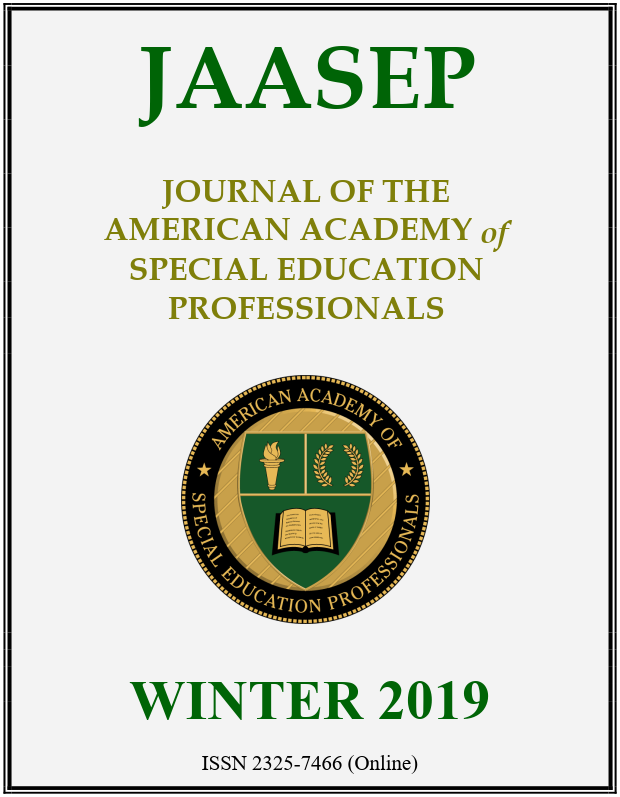Responding to the Endrew’s Decision: Measuring Meaningful Educational Benefit
Dunn, J. (2017, Summer). Special education standards: Supreme Court raises level of benefit, Education Next, 17(3), 7.
Hasbrouck, J., & Tindal, G. (2006). Oral reading fluency norms: A valuable assessment tool for reading teachers. The Reading Teacher, 59(7), 636-644. doi:10.1598/RT.59.7.3 Intervention Central, (n.d.). Reading Retrieved from http://www.interventioncentral.org/teacher-resources/oral-reading-fluency-passages-generator DOI: https://doi.org/10.1598/RT.59.7.3
Katsiyannis, A., Counts, J., Popham, M., Ryan, J., & Butzer, M. (2016). Litigation and students with disabilities: An overview of Cases from 2015. NASSP Bulletin,100(1), 26-46. DOI: https://doi.org/10.1177/0192636516664827
Lee, A.M., Endrew F. (2017, March 22). Case decided: Supreme Court rules on how much benefit IEPs must provide, In the New (Blog): Understood, Retrieved from https://www.understood.org/en/community-events/blogs/in-the-news/2017/03/22/endrew-f-case-decided-supreme-court-rules-on-how-much-benefit-ieps-must-provide?gclid=CjwKCAjwoNrMBRB4EiwA_ODYv_SdZp0RdAxRu7CD2Zjhf00ViGJFFMmpiV0EvKQEJYu48rdnhDpVThoCQzgQAvD_BwE.
National Center of Education Statistics, (2017). Children with disabilities. The Condition of Children. Retrieved from https://nces.ed.gov/programs/coe/indicator_cgg.asp
Samuels, C. A., and Walsh, M., (2017, April 5). High court ruling firms up goal posts on special education rights, Education Week, 36(27), 1.
Downloads
Article Information
- Article Type Articles
- Submitted January 8, 2019
- Published February 15, 2019
- Issue Winter 2019
- Section Articles
